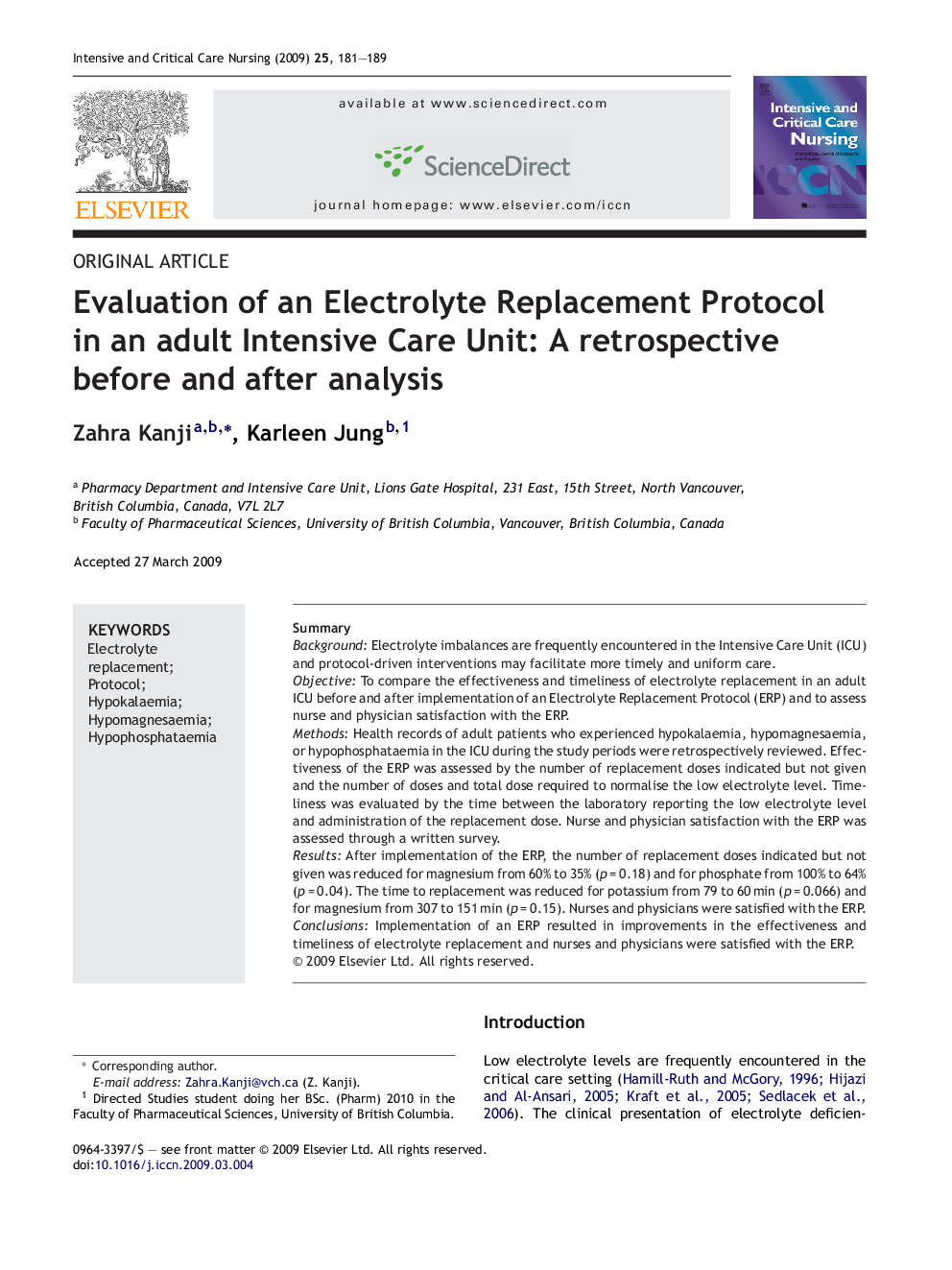| Article ID | Journal | Published Year | Pages | File Type |
|---|---|---|---|---|
| 2653447 | Intensive and Critical Care Nursing | 2009 | 9 Pages |
SummaryBackgroundElectrolyte imbalances are frequently encountered in the Intensive Care Unit (ICU) and protocol-driven interventions may facilitate more timely and uniform care.ObjectiveTo compare the effectiveness and timeliness of electrolyte replacement in an adult ICU before and after implementation of an Electrolyte Replacement Protocol (ERP) and to assess nurse and physician satisfaction with the ERP.MethodsHealth records of adult patients who experienced hypokalaemia, hypomagnesaemia, or hypophosphataemia in the ICU during the study periods were retrospectively reviewed. Effectiveness of the ERP was assessed by the number of replacement doses indicated but not given and the number of doses and total dose required to normalise the low electrolyte level. Timeliness was evaluated by the time between the laboratory reporting the low electrolyte level and administration of the replacement dose. Nurse and physician satisfaction with the ERP was assessed through a written survey.ResultsAfter implementation of the ERP, the number of replacement doses indicated but not given was reduced for magnesium from 60% to 35% (p = 0.18) and for phosphate from 100% to 64% (p = 0.04). The time to replacement was reduced for potassium from 79 to 60 min (p = 0.066) and for magnesium from 307 to 151 min (p = 0.15). Nurses and physicians were satisfied with the ERP.ConclusionsImplementation of an ERP resulted in improvements in the effectiveness and timeliness of electrolyte replacement and nurses and physicians were satisfied with the ERP.
